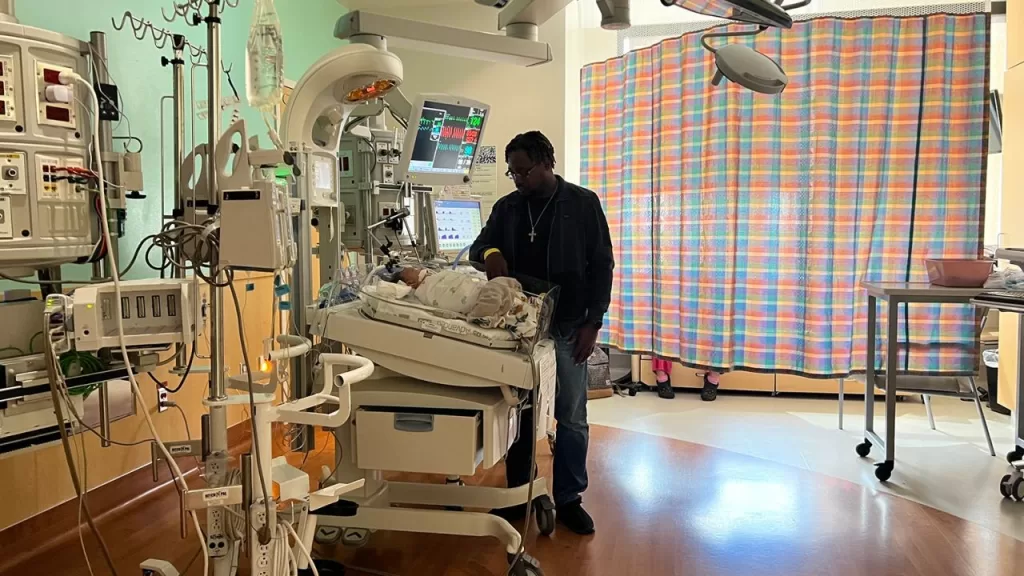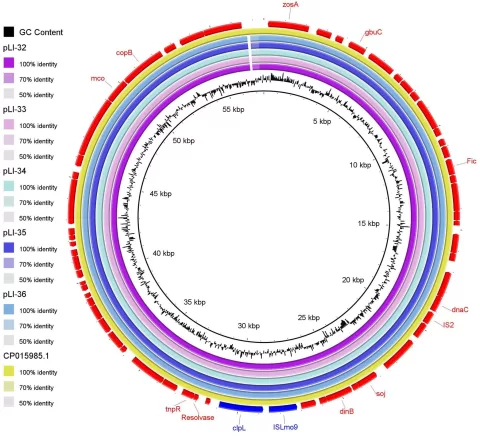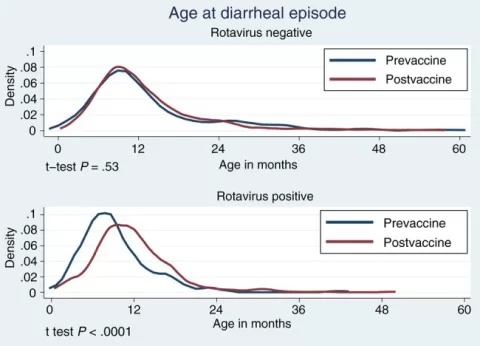RSV hospitalization has emerged as a critical concern for adults suffering from respiratory syncytial virus (RSV) infections, often leading to severe health complications. Recent studies indicate that those hospitalized due to RSV face significantly higher mortality rates compared to flu patients, highlighting the infection risks associated with RSV. Furthermore, adults with RSV are at an increased risk for secondary infections such as pneumonia and acute kidney injury. With alarming statistics suggesting that 60% of RSV patients develop bacterial pneumonia, understanding the implications of RSV hospitalizations is vital for public health efforts. The correlation between RSV hospitalization and adverse cardiovascular events also underscores the need for increased awareness and effective vaccination strategies to mitigate these health risks.
The hospitalization caused by respiratory syncytial virus (RSV) is a growing public health issue that disproportionately affects adult populations, particularly those with pre-existing health conditions. Recent investigations into adult RSV cases reveal troubling associations with a range of severe health consequences, including heightened mortality rates. The literature not only points to a marked increase in cardiovascular events following hospitalization for RSV, but also illustrates an elevated risk of pneumonia and kidney-related complications. Analyzing adult RSV studies reinforces the urgency of understanding the systemic impacts of RSV infections and how they can lead to long-term health challenges. As we navigate the complexities surrounding RSV and pneumonia, it becomes clear that effective prevention measures, including vaccination, are essential for reducing hospitalizations and improving patient outcomes.
Understanding RSV Hospitalization Risks in Adults
Respiratory Syncytial Virus (RSV) is commonly associated with severe respiratory infections in infants, but recent studies have highlighted the increasing risks associated with RSV hospitalization in adults. Between 2016 and 2023, a significant review of hospitalized patients in Hong Kong found that those admitted for RSV faced notably higher mortality rates than their counterparts hospitalized for influenza. Specifically, the research demonstrated a mortality rate of 10.1% in the RSV group, contrasting sharply with the 5.5% for the flu. This stark difference underscores the urgent need for increased awareness and preventive measures surrounding RSV infection risks among adults.
Additionally, the data reveals that patients hospitalized for RSV not only experience higher mortality rates but are also more susceptible to adverse health outcomes. The study indicated that 61.5% of these adults developed secondary bacterial pneumonia, a drastic increase compared to 39.5% among flu patients. This highlights how RSV can complicate recovery, leading to further respiratory distress and potential need for intensive care. These findings call for a reassessment of health strategies, including vaccination and surveillance of respiratory syncytial virus infection risks in the adult population.
The Link Between RSV and Cardiovascular Events
Recent studies have brought to light alarming correlations between RSV hospitalization and an increased risk of cardiovascular events (CVEs) in adults, particularly following hospitalization. A study conducted between the winters of 2017-18 to 2019-20 revealed that a notable 37% of adults hospitalized for RSV experienced cardiovascular complications within 28 days of admission. Common outcomes included congestive heart failure, atrial fibrillation, and myocardial infarction, conditions that can severely impact long-term health and quality of life. This correlation necessitates greater scrutiny of cardiovascular health among hospitalized patients with RSV.
This connection between RSV and cardiovascular events is particularly significant for individuals with existing comorbidities, as they demonstrate a heightened risk of developing these complications post-discharge. The importance of timely identification and management of such risks cannot be overstated. Health professionals must remain vigilant in monitoring patients who have been hospitalized for RSV, guiding them on the potential dangers they face and actively managing their cardiovascular health. As the studies suggest, a significant percentage of those affected were likely unaware of their cardiac risks, indicating a vital gap in patient education and follow-up care.
RSV: A Precursor to Pneumonia and Acute Kidney Injury
The association between RSV hospitalization and secondary bacterial pneumonia is a critical aspect of understanding the broader implications of RSV infections in adults. Research reportedly indicates that a staggering 60% of RSV patients developed bacterial pneumonia by the time they were hospitalized, highlighting the need for vigilance in diagnosing and managing respiratory complications. This is of particular concern given that pneumonia can lead to longer recovery times and increased healthcare costs, not to mention the added strain on an individual’s immune system.
Furthermore, the risk of acute kidney injury (AKI) following RSV hospitalization adds another layer of concern, with rates significantly higher in the RSV group compared to flu patients. The 16% incidence of AKI in RSV patients starkly contrasts with the flu group’s 12.6%. Such complications can complicate recovery and have long-lasting effects on patient health. This intensifies the call for routine screening and preventive strategies in adults, especially those at risk for severe outcomes due to RSV infections.
Mortality Rates and Implications of RSV in Adults
The findings surrounding mortality rates associated with RSV hospitalization paint a concerning picture. With a reported mortality rate of 10.1%, the numbers indicate that RSV poses a significantly deadlier threat to adults compared to influenza. The adjusted odds ratio of 1.52 emphasizes that adults hospitalized for RSV have a 52% higher risk of death than those hospitalized for the flu. Understanding these mortality figures is essential not only for public health data but also for motivating adults to prioritize preventive care measures, including vaccines.
Moreover, the shocking mortality figures associated with RSV infection underscore a clear clinical impact on adults, particularly among those with existing health conditions. The implications of these findings extend beyond immediate healthcare response; they highlight a pressing need for better education about RSV, the importance of early treatment, and continued advocacy for the inclusion of adult vaccinations in routine health recommendations. In considering mortality rates, we must also address the emotional and societal ramifications of losing individuals to preventable viral infections.
RSV and Its Impact on Vulnerable Populations
Vulnerable populations, including the elderly and those with comorbidities, are particularly at risk for severe outcomes following RSV infections. This demographic often experiences not only elevated mortality rates but also a series of complications that can arise during hospitalization. The vulnerability of these groups necessitates tailored health strategies that specifically address their needs, such as targeted vaccination programs and increased awareness about RSV infection.
Additionally, understanding the impact of RSV on these populations highlights the need for community resources and support systems that focus on preventive health education. Encouraging vaccination against RSV can significantly reduce hospitalization rates and associated complications for these high-risk groups, ultimately saving lives and reducing the burden on healthcare systems. By prioritizing the health of vulnerable populations, we can aim to mitigate the adverse effects of RSV infections.
Evaluating the Need for RSV Vaccination in Adults
The recent data regarding the severe outcomes of RSV in adults has brought the necessity for an adult RSV vaccination to the forefront. Considering that RSV infection can lead to significant mortality and cardiovascular complications, there is a compelling argument for policy changes regarding vaccination recommendations. Current guidelines primarily focus on pediatric populations, yet these findings suggest that adults, especially the elderly and those with risk factors, require equal consideration in vaccination strategies.
Furthermore, the increased incidence of respiratory complications and mortality associated with RSV hospitalization reinforces the need for a robust public health initiative focused on adult health. Vaccination programs could serve as a crucial preventive measure, potentially reducing the rates of hospitalization and adverse health outcomes related to RSV. It is essential for healthcare professionals to advocate for better access to these vaccines and to educate the adult population about the potential risks of RSV, which can lead to devastating health implications.
The Burden of Respiratory Syncytial Virus on Healthcare Systems
The rising cases of RSV infections in adults bring forth significant challenges for healthcare systems, notably increased hospitalization rates and morbidity. With the recent studies showcasing higher mortality and complication rates, hospitals may face an overwhelming burden if preventive measures are not taken seriously. Healthcare professionals must strategize to manage not only the immediate care of RSV patients but also the long-term effects, including increased follow-up treatments and potential re-hospitalizations.
These challenges emphasize the importance of funding and resources devoted to understanding and managing RSV in adult populations. By investing in research, community education, and vaccination programs, healthcare systems can create a more resilient infrastructure capable of handling the demands posed by RSV infections. It is essential that healthcare policymakers recognize the weight of RSV on public health and respond accordingly to mitigate its impact on systems already strained by other respiratory illnesses.
Long-term Outcomes Following RSV Hospitalization
The long-term implications for adults who suffer from RSV are a growing area of concern among healthcare providers. Understanding the risks of post-viral complications such as cardiovascular events, secondary pneumonia, and kidney injury is crucial for managing patient health after discharge. The need for continuous monitoring and follow-up care is emphasized by studies showing that many adults may remain unaware of their elevated risks for developing long-term health issues.
As part of improving post-RSV care, healthcare systems must consider implementing structured follow-up programs to monitor patients who’ve been hospitalized for RSV. This includes educating patients about potential symptoms they should watch for, such as arrhythmias or signs of respiratory distress. Ensuring that patients are prepared with knowledge regarding their health and future risks can lead to better outcomes and reduced emergency incidents following RSV hospitalization.
Research Implications: Adult RSV Studies and Future Directions
As more studies emerge highlighting the significant risks linked to RSV hospitalization in adults, there is a clear demand for further research to understand these dynamics fully. Current studies suggest that RSV not only leads to respiratory complications but also significantly increases the risk of cardiovascular events and mortality. The need for extensive adult RSV studies can aid in establishing better guidelines for prevention, vaccination, and patient care protocols.
Ongoing research into the correlation between RSV and comorbid conditions could pave the way for specialized treatment approaches that focus on managing both respiratory and cardiovascular health. Moreover, by encouraging collaboration among healthcare providers and researchers, we can stimulate the development of effective adult vaccination strategies and ultimately reduce the morbidity and mortality associated with RSV infections across populations.
Frequently Asked Questions
What are the hospitalization rates for RSV infection compared to other respiratory viruses?
RSV hospitalization rates are significant, particularly among adults, with studies showing a mortality rate of 10.1% for RSV-infected patients compared to 5.5% for influenza. Adults with RSV are also more likely to develop complications like secondary bacterial pneumonia and acute kidney injury, highlighting the severe implications of RSV infections.
How does RSV hospitalization increase the risk of cardiovascular events?
Patients hospitalized for RSV face an increased risk of cardiovascular events, with recent studies revealing that 37% of adults developed complications such as congestive heart failure and atrial fibrillation within 28 days of being admitted. These risks are notably higher in those with existing cardiac conditions.
What is the link between RSV hospitalization and mortality rates?
Research indicates that RSV hospitalization is associated with a 52% increased risk of in-patient mortality. The study highlights that older adults and those with comorbidities are particularly vulnerable, underlining the need for effective RSV prevention strategies.
Can RSV infection lead to pneumonia in hospitalized patients?
Yes, approximately 60% of hospitalized RSV patients develop bacterial pneumonia. This significantly higher rate compared to influenza patients emphasizes the serious nature of RSV infection and its complications among adults.
What are the long-term health implications following RSV hospitalization?
Post-hospitalization, adults who suffered from RSV infection are at risk of long-term complications like new-onset congestive heart failure and other cardiovascular issues. Continued monitoring and assessment are essential for recovering patients.
How does RSV hospitalization affect adult patients with existing health issues?
Adults with pre-existing health conditions are at a higher risk during RSV hospitalization. Studies show these patients experience worse outcomes, including higher rates of mortality and cardiovascular events, necessitating a tailored approach to manage their care.
| Key Point | Details |
|---|---|
| Increased Mortality Risk | Adults hospitalized with RSV had a mortality rate of 10.1%, significantly higher than the 5.5% seen in flu patients. |
| Higher Incidence of Pneumonia | 61.5% of RSV patients developed secondary bacterial pneumonia, compared to 39.5% of flu patients. |
| Acute Kidney Injury Risk | 16% of RSV hospitalized patients experienced acute kidney injury (AKI), against 12.6% for flu patients. |
| Cardiovascular Events | 37% of hospitalized patients with RSV experienced cardiovascular events within 28 days of admission. |
| Common Cardiac Complications | Most frequent cardiovascular events included congestive heart failure (25%), atrial fibrillation (13%), and myocardial infarction (9%). |
Summary
RSV hospitalization poses a significant risk of serious health complications including increased mortality, secondary infections, and cardiovascular events. As studies highlight, adults hospitalized due to RSV face a markedly higher risk of death and severe health outcomes compared to those hospitalized for influenza. This underscores the urgent need for proactive measures, including revisiting vaccination strategies for RSV in adults, to mitigate these risks effectively.
The content provided on this blog (e.g., symptom descriptions, health tips, or general advice) is for informational purposes only and is not a substitute for professional medical advice, diagnosis, or treatment. Always seek the guidance of your physician or other qualified healthcare provider with any questions you may have regarding a medical condition. Never disregard professional medical advice or delay seeking it because of something you have read on this website. If you believe you may have a medical emergency, call your doctor or emergency services immediately. Reliance on any information provided by this blog is solely at your own risk.








